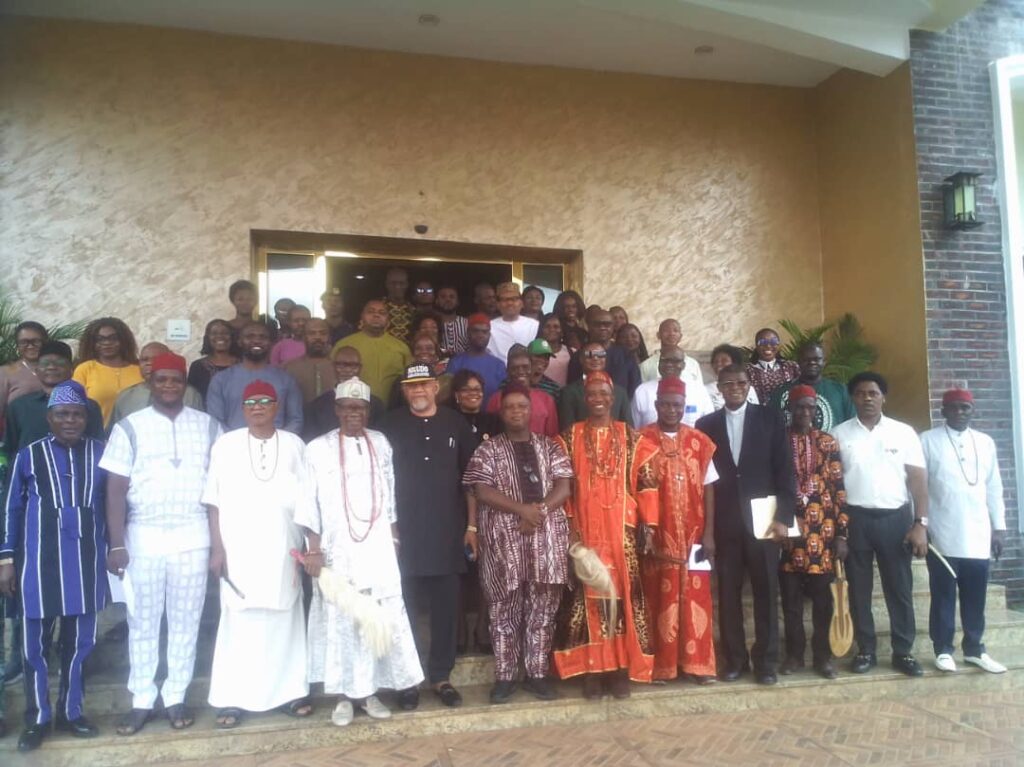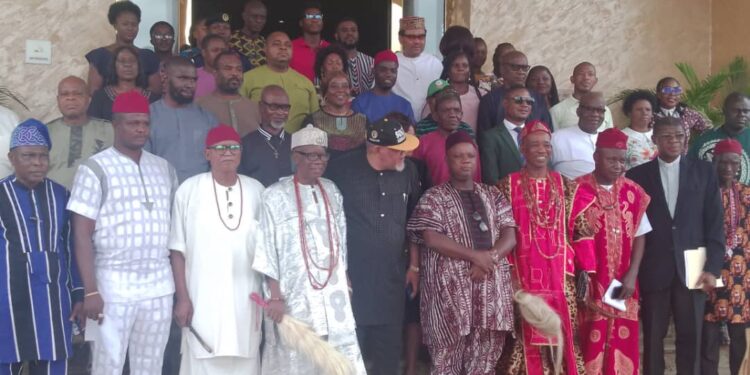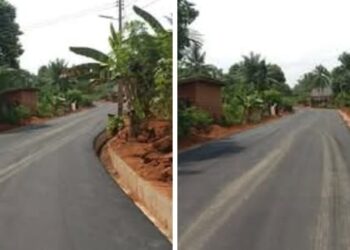Chinedum Treasure
Anambra State government has cautioned oil companies and host communities in the state against acts capable of instigating crisis in the state.
Commissioner for Petroleum and Mineral Resources, Bar. Anthony Ifeanya gave the advice on Thursday in Awka during a town hall meeting on implementation of host communities provisions in the Petroleum Industry Act (PIA) in the state.

He underscored the place of peace between the oil companies and host communities to ensure the benefits of the God-given natural resources to the communities would be actualized.
He said, “There is need for peace between the oil companies and the host communities so that the benefits of the God-given natural resources to the communities will be to their advantage.
“It is in the atmosphere of peace that there would be progress. That is the only time they would derive benefit, and get the things they are supposed to get for the betterment of the people.

“But when there is crisis, it will cause problem both for the oil companies and the communities. We are trying to enlighten both parties on their rights, duties and liabilities under the Petroleum Industries Acts (PIA) so each partner will know its own obligations.
“By this engagement, we want the oil companies to know what is expected of them to do for the host communities while they are doing their business and for the host communities to know what they are expecting from the oil companies that are doing business in their place to yield peaceful coexistence.
“Before now, we facilitated and ensured host communities signed the Global Memorandum of Understanding (GMoU) with the oil companies. But now, we have passed that stage as those GMoU are no longer applicable.
“They have been overtaken by the provisions of the Petroleum Industry Acts, which has now made it a law that the oil companies must establish a host communitys’ Development Trust Fund for the host communities where they should be paying in 3percent of their annual expenses overating cost for the year in liu.
“What is required now is transparency. If the oil companies are transparent, they would be able to give open account of their annual operational cost, as well as give host communities their entitlements.
“There are other cooperate social responsibilities they are supposed to do for the host communities in terms of the provision of social infrastructure, good roads, schools, scholarships, employments. Again, they are expected to have good percentage of the indigenes under their workforce as stipulated by the law.
“These are the things that cause crisis which is what we want to arrest by this stakeholder engagement. We want to make sure that both the host communities and companies know that there is a law and where there is a law, there is right.
“We want the communities to know that if their rights are injured, there is a legal way it can be addressed rather than going the way of violence or damaging of facilities. PIA has placed sanctions on any community that damage anything belonging to the company. That is why it is always good to negotiate and talk.
“What we are doing in the ministry is to make sure we bring all of them together and ensure we all move at the same pace for peace and progress.”
Appreciating the Centre LSD for being in the state to educate the people on issues on the oil sector, Ifeatu expressed optimism that the intervention would go a long way to preventing repeat of ugly experiences in Niger Delta.
Executive Director of Centre LSD, Monday Osasah described the meeting as significant step towards ensuring that petroleum resources benefitted the host communities.
He praised the Commissioner for Petroleum and Mineral Resources for his vision and commitment to ensuring that the state’s oil resources were managed sustainably.
“We won’t have it better than this. Petroleum should be a blessing to us, not a curse,” he added.
Executive Secretary, Nigeria Extractive Industries Transparency Initiative (NEITI), Dr Orji Orji, while speaking on “Expectations from Host Communities and Roles of Nigerian Upstream Petroleum Regulatory Commission (NUPRC) in PIA highlighted the agency’s role in promoting transparency and accountability in Nigeria’s extractive industries.
Orji, represented by Director, Policy Planning and Strategy, Dr Dieter Bassi said the Agency was committed to ensuring that revenues were properly accounted for and utilized.
Also speaking, Head, Health, Safety Environment and Community (HSEC), Eastern Zone, Dr Ben Okpa urged collective commitment to ensuring the State’s oil resources benefit all stakeholders, with focus on accountability, transparency and sustainable development.
Earlier, President, IPCRC, Prince Chris Azor said the engagement was targeted at discussing the effective implementation of Host Communities’ Provisions in the Petroleum Industry Act (PIA) with the desire for peace, security and sustainable development.
He listed expected outcomes of the meeting to include: improved understanding of PIA and Host Communities’ Provisions, enhanced stakeholder engagement as well as collaboration, identification of priority areas, clarifications and action plan.
He said, “The Town Hall Meeting was conceptualized to facilitate a collaborative interface town hall among settlors (Investors), host communities, Civil Society Organizations (CSOs), and NUPRC in Partnership with the state Ministry of Petroleum and Mineral Resources.
“The PIA aims to promote sustainable development and address concerns of host communities in the petroleum industry.
“Anambra State as the newest admission into oil producing State in Nigeria, presents issues around capacity to engage the PIA.
“The meeting provides a platform for stakeholders to engage, share experiences, seek clarity and identify solutions for successful implementation.
“It was also opportunity to enhance understanding of Host Communities’ Provisions in the PIA to ensure seamless implementation, foster collaboration and trust among stakeholders towards effective implementation.
“Stakeholders were expected to identify priority areas for engagement, develop a joint action plan and timeline, strengthen relationships and build trust for sustainable development.
“They are also expected to strengthen relationships and trust among stakeholders as well as increase awareness of environmental and social responsibilities.”
The 2-day meeting organised by African Centre for Leadership, Strategy & Development and stakeholders and International Peace and Civic Responsibility Centre (IPCRC) had representatives from government, civil society, oil-producing communities and traditional institutions in attendance.






